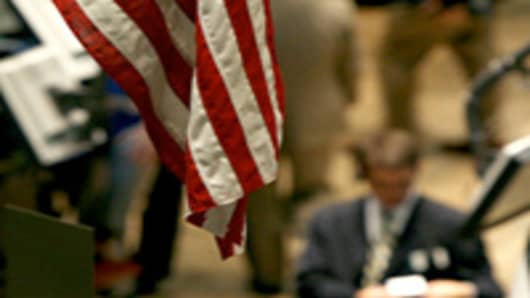Increasingly, outsized Wall Street incomes, juiced by duping and defrauding investors, deprives pension funds, university endowments and ordinary investors of the returns they are due on their stocks.
The absence of significant appreciation in equities for more than a decade means that many retirees dependent on IRAs and other defined contributions vehicles no longer have enough income to live comfortably, and baby boomers who have been pushed into such pension vehicles can’t retire. For both groups their money may be working hard, but for Wall Street and not for them.
It is sound economic policy to have workers saving for retirement, instead of relying on the promise of a benefits defined pension from an employer that may ultimately disappear, but those contributions defined pensions simply can’t work without a stock market that generates returns that follow the growth of corporate profits.
Americans expect carnivals and casinos to be stacked against them—gambling is entertainment and losses are expected—but capital markets are where the nation’s savings are supposed to be put to their best uses—provide growth and opportunity for the next generation.
In this environment, too much money and talent are directed to financial engineering—efforts to design the next complex derivative—and not enough is going into physics and real engineering—designing electric car technology, new materials and products and services that will define U.S. global competitive success and prosperity for the next 25 years.
Also, the carnival culture on Wall Street is attracting too many young people to business schools to study economics and finance, instead of studying physics and engineering—that‘s why business schools are stacked with applicants from suburban Connecticut, while engineering schools are populated by students from China and Asia, who will return home to outcompete American businesses.
Increasingly venture capital and equity investors look abroad for better returns, and this deprives small and moderate sized U.S. companies of capital needed to invest in new ideas and ordinary expansion, and fire up, the until now weak, economic recovery and creation of private sector jobs.
Domestically, the Wall Street casino has misdirected what capital is invested in the United States. During the boom of the last decade, America overinvested in housing and underinvested in industry by persuading investors to purchase bonds that funded “creative mortgages” for folks who could not afford and are now losing 4000 square foot homes, and to otherwise prosperous Americans to foolishly purchase second and third homes as investments against future appreciation.
All proved poor bets and sewed robo foreclosure scandal. As the mortgage meltdown continues, consider how much more competitive the U.S. economy would be today—and how many more good paying jobs Americans would have—had those homes never been built and that money invested in new technologies and expanding sound enterprises.
Cleaning up Wall Street will do a lot to curb abusive practices and the culture of entitlement, and make stock prices rise and IRAs sensible investments, redirect capital and talent into productive purposes, and get the American growth machine—and the hopes and dreams of our children and grandchildren—back on track.
Peter Morici is a professor at the Smith School of Business, University of Maryland, and former Chief Economist at the U.S. International Trade Commission.


